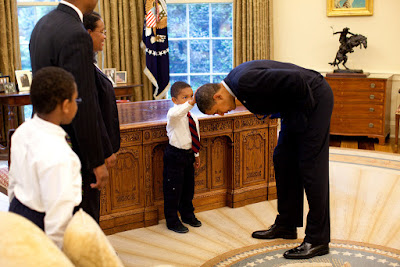kpete
kpete's JournalThe good old days.....

http://www.ibtimes.com/gawker-vs-thiel-rip-tony-stark-theory-journalism-2374110
Judge to teen talking about trauma: ďHave you ever lectured on a professional level on psychology?"

http://www.huffingtonpost.com/entry/deportation-raids-immigration-courts_us_574378d9e4b0613b512b0f37?ni20kmmv6igt4kj4i
The enduring whiteness of the American media
What three decades in journalism has taught me about the persistence of racism in the US
...........
With Trump all but certain to be the Republican nominee, all signs point towards a tense and extraordinarily racialised campaign – and one that will pose a severe test for American journalism, which has been as beset by the crisis of race as the society it claims to rigorously examine.
The intersection between America’s age-old race problem and the crisis of race in journalism takes two forms. The first is a simple failure of integration: the news organisations that have traditionally comprised “mainstream” journalism have done little to welcome or encourage African-Americans, who are substantially underrepresented by comparison to their numbers in the overall population. This problem is obvious to anyone who cares to look – and it has become sufficiently embarrassing for a number of publications to make sporadic but ultimately ineffectual efforts to redress it. As soon as one or two hires are made, attention inevitably shifts elsewhere, much as the focus of the press drifted away from racial bias in the criminal justice system once a whiff of the campaign season could be sensed in the air.
All signs point towards a tense and extraordinarily racialised campaign that will be a severe test for US journalism
But the second and more subtle issue is a persistent problem of typecasting – a deeply embedded view that regards certain topics as “black” and the rest as “white”. Those black people who make their way into the business are heavily concentrated in stereotypical roles. This has meant sport, entertainment and especially what is euphemistically called urban affairs, often meaning reporting on black people. By contrast, there are very few black journalists writing about politics and national security, international news, big business, culture (as opposed to entertainment) or science and technology – they are essentially absent from large swaths of coverage, and even more sparsely represented among the ranks of editors. This is not a trivial matter, or a subject of concern solely to journalists: the overwhelming whiteness of the media strongly but silently conditions how Americans understand their own country and the rest of the world.
These problems are not new, and they are not unknown: they have been confirmed by survey after survey measuring diversity in the country’s newsrooms and on its airwaves, but this is not how I discovered them. The lessons I received in the matter all came through direct experience, inside what many consider America’s foremost news organisation:

http://www.theguardian.com/world/2016/may/25/enduring-whiteness-of-american-journalism?CMP=share_btn_tw
Marco Rubio: 'Itís not that we lost, itís that Donald Trump won'
During a recent interview in his Senate office, Rubio reflected on where his campaign went wrong, what he learned from his recent overseas trip and why he would rather make the most of his remaining seven months in federal office than opine about the state of the 2016 race.
“A lot of times it feels almost like the guy who built this really strong building,” Rubio said of the Republican contest, “and it was in the right place, and it was the way these buildings have always been built, but he got hit by a category five hurricane.
“It’s not that we lost, it’s that Donald Trump won … It was just a very unusual political year.”
Unprecedented might be another word for it, in that the most pressing question Rubio faced upon his return from the Middle East had nothing to do with his trip but rather an all-too-familiar fixation with whether he would support Trump as the nominee (the answer is yes), followed by mounting speculation over whether he would accept an invitation to be Trump’s vice-president (the answer is no).
more sad from rubio:
http://www.theguardian.com/us-news/2016/may/24/marco-rubio-interview-presidential-nomination-donald-trump
Trump didn't just say he'd make money if economy collapsed, he said "I sort of hope that happens"
For clarification:
Donald Trump said he wanted to see a crash two years before the housing market collapsed, spurring the 2008 financial crisis, according to a new report.
"I sort of hope that happens because then people like me would go in and buy," the billionaire businessman said in a 2006 audiobook from Trump University published by CNN. "People like me would go in and buy like crazy."
http://thehill.com/blogs/blog-briefing-room/news/280662-trump-in-2006-i-sort-of-hope-real-estate-market-crashes
http://www.people.com/article/donald-trump-global-warming-economic-collapse
ExxonMobil moved to squash discussion on climate science just 9 days after inauguration of George W
ExxonMobil moved to squash a well-established congressional lecture series on climate science just nine days after the presidential inauguration of George W Bush, a former oil executive, the Guardian has learned.
Exxon’s intervention on the briefings, revealed here for the first time, adds to evidence the oil company was acutely aware of the state of climate science and its implications for government policy and the energy industry – despite Exxon’s public protestations for decades about the uncertainties of global warming science.
Indeed, the company moved swiftly during the earliest days of the Bush administration to block public debate on global warming and delay domestic and international regulations to cut greenhouse gas emissions, according to former officials of the US Global Change Research Program, or USGCRP.
...........
The oil company is under investigation by 17 attorney generals for misleading the public about climate change, and is facing a shareholder revolt at its annual general meeting on Wednesday by investors pressing Exxon for greater disclosure about the effect of climate change on its profits.
In early 2001, however, after Al Gore lost the White House to George Bush, Exxon officials apparently saw a chance to influence the incoming administration, according to former officials of the research program.
............
MORE:
https://www.theguardian.com/business/2016/may/25/exxonmobil-climate-change-scientists-congress-george-w-bush
Exclusive: Donald Trump signed off deal designed to deprive US of tens of millions in tax

Donald Trump signed off on a controversial business deal that was designed to deprive the US Government of tens of millions of dollars in tax, the Telegraph can disclose.
The billionaire approved a $50 million investment in a company – only for the deal to be rewritten several weeks later as a ‘loan’.
Experts say that the effect of this move was to skirt vast tax liabilities, and court papers seen by the Telegraph allege that the deal amounted to fraud.
Independent tax accountants and lawyers said that the documents Mr Trump signed – copies of which were obtained by this newspaper as part of a three-month investigation - contained “red flags” indicating the deal was irregular.
But the Republican presumptive presidential nominee signed nonetheless.
MORE:
http://www.telegraph.co.uk/news/2016/05/25/exclusive-donald-trump-signed-off-deal-designed-to-deprive-us-of/
CNN = Shitty Journalism
"Trump & Clinton trade attacks"
http://liberalsarecool.com/post/144887978731/trump-is-garbage-the-media-needs-to-wake-up
The Most Important Legacy of Barack and Michelle Obama

By Nancy LeTourneau
Barack and Michelle Obama entered the White House not only with an awareness about what was coming, but also an understanding that they would face this kind of onslaught as the first African Americans to live there. There have been times that I’ve tried to imagine the weight they willingly took on their shoulders to avoid those kinds of entanglements – knowing what the slightest human imperfection would trigger.
It’s not that Republicans haven’t tried. We’ve seen attempts to blow up everything from a gun-running sting gone bad, mistreated veterans, the botched rollout of HealthCare.gov, the Bowe Bergdahl prisoner exchange, Secret Service debauchery, the IRS targeting, Hillary Clinton’s email server and Benghazi. That doesn’t even count all the times we’ve been subjected to complaints about teleprompters, the President’s golf game, family vacations, and the color of the suit the President wore for a press conference (to name just a few). But other than in the minds of the conspiracy-obsessed, nothing stuck.
As we approach the 2016 election and the end of this President’s second term, we’ll continue to see attempts to summarize his legacy of accomplishments. This one should be at the top of any list. That is partly because an attempt to de-legitimize him via scandal has failed. It is also why he will be positioned to be an asset to Hillary Clinton. But in ways that are probably not yet imagined, Barack and Michelle Obama have paved the way for countless young African Americans to be proud, and aspire to follow in their footsteps.
MORE:
http://www.washingtonmonthly.com/political-animal-a/2016_05/the_most_important_legacy_of_b060642.php
Profile Information
Member since: Fri Sep 17, 2004, 03:59 PMNumber of posts: 71,991
 ?1464127923
?1464127923